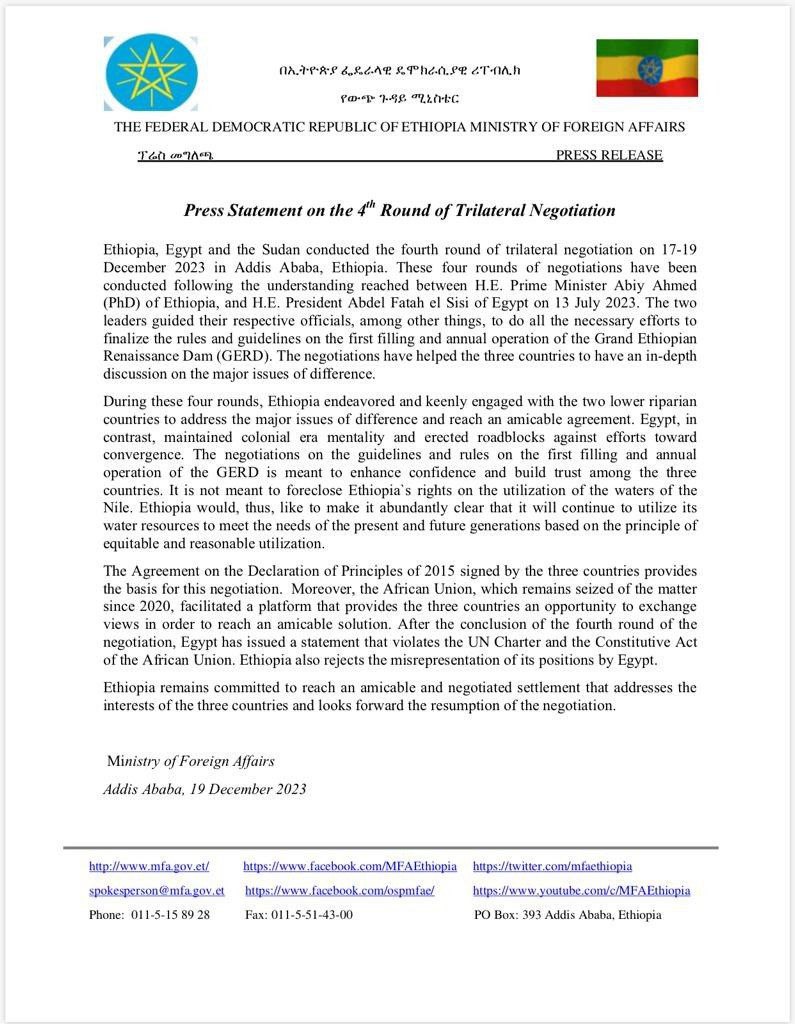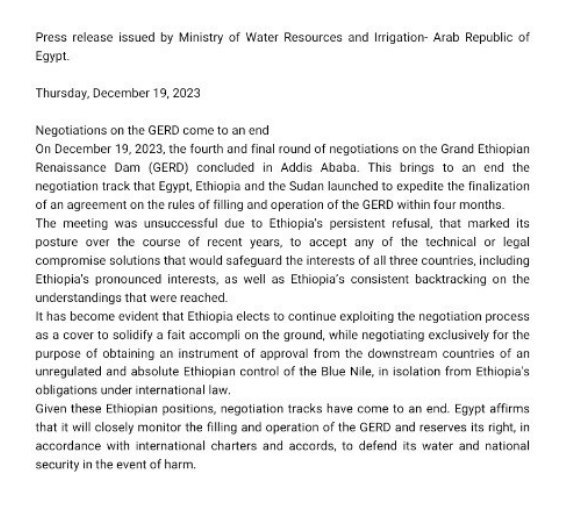Over the course of the last three days, Ethiopia, Egypt, and Susan concluded their much-awaited fourth round of negotiations without engaging in any negotiations to finalise the rules and processes for the Grand Ethiopian Renaissance Dam (GERD)’s first filling and annual operation.
These four rounds of negotiations have taken place in response to the agreement reached on July 13, 2023, between H.E. Prime Minister Abiy Ahmed (PhD) of Ethiopia and H.E. President Abdel Fatah el Sisi of Egypt.
The conversations have allowed the three countries to have a detailed discussion of the primary areas of contention.
The conversations have allowed the three countries to have a detailed discussion of their main issues of contention.
Ethiopia tried its best and took part in all four of these rounds.

Ethiopia claims that during these four sessions, it actively participated in and tried to collaborate with the two lower riparian nations to address the main problems and come to a mutually acceptable resolution; however, Egypt, in the Ethiopian government’s opinion, resisted efforts at convergence and stuck to colonial ideas.
According to the most current statement from Ethiopia’s Ministry of Foreign Affairs, the goal of the negotiations on the norms and standards for the GERD’s initial filling and annual operation is to foster confidence and trust among the three nations. It is not meant to limit Ethiopia’s access to the waters of the Nile.
Ethiopia wishes to be very clear that it will continue to use its water resources fairly and reasonably in order to meet the needs of present and future generations, according to the Ministry.
The statement further stated that at the conclusion of the fourth round of negotiations, Egypt had issued a statement that was in violation of both the United Nations Charter and the African Union’s Constitutive Act. Ethiopia also rejects Egypt’s misrepresentation of its position.
According to the government, Ethiopia remains committed to picking up the negotiations and striving for a peaceful, amicable settlement that considers the interests of the three countries.
However, a press release from Egypt’s Ministry of Water Resources and Irrigation stated that the main reasons the meeting failed were Ethiopia’s persistent disregard for the agreements made and its refusal to accept any legal or technical compromise solutions that would have protected the interests of all three countries—including Ethiopia’s particularly significant interests. Egypt claims that Ethiopia’s position has been marked by this rejection for the past few years.

Egypt asserts that Ethiopia is only involved in negotiations to obtain downstream countries’ consent to Ethiopia’s unrestricted and total control over the Blue Nile, independent of Ethiopia’s obligations under international law. Ethiopia chooses to proceed using the negotiation process as a pretext to reinforce a fait accompli on the ground. In the statement, Egypt added that it will closely monitor the GERD’s filling and operation and that, in accordance with international charters and conventions, it would be right to defend its national security and water resources in the event that anything were to happen to it.